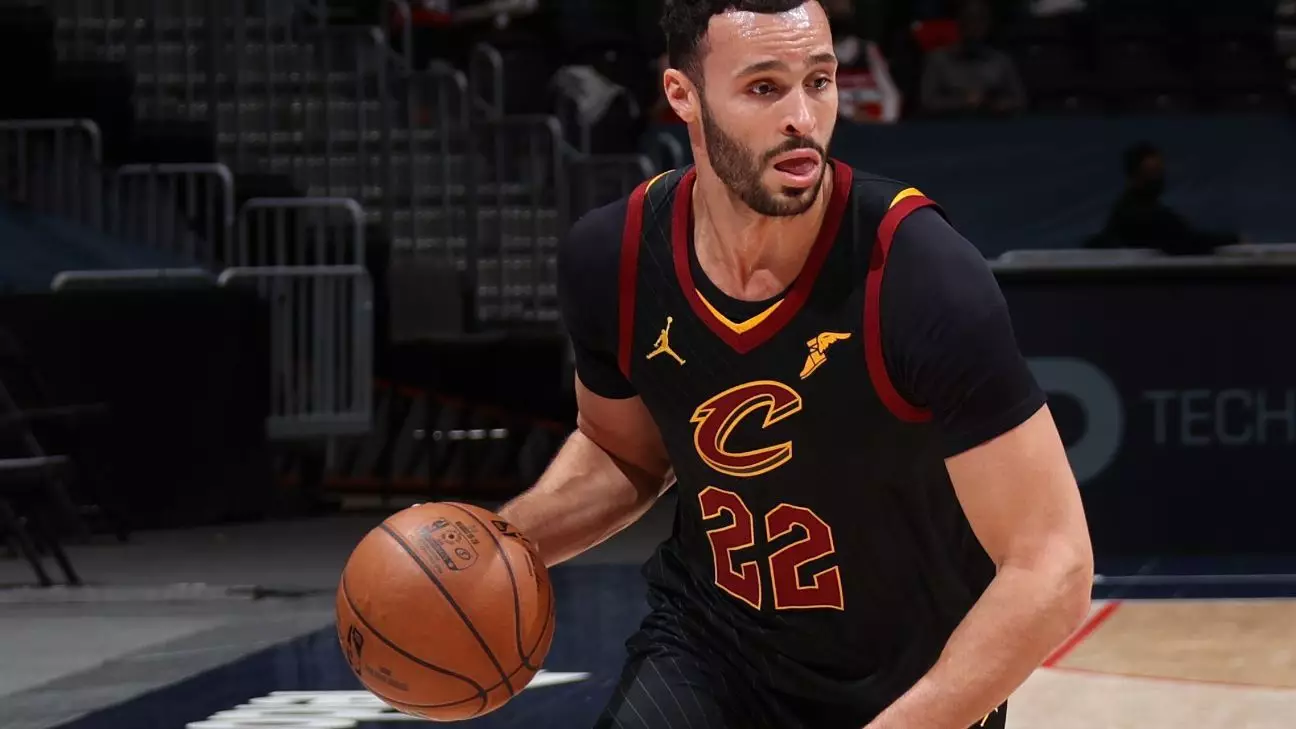In recent years, an undeniable cultural shift has emerged within the NBA, one that reveals a deepening admiration for international soccer among its elite athletes. Once considered a distant sport, soccer has now become a vital part of basketball locker room conversations, team activities, and personal passions. This transformation is fueled by more than just casual interest; it signifies a broader cultural exchange where the worlds of basketball and soccer are increasingly intertwined, shaping the identities and experiences of today’s athletes. What once was a peripheral curiosity has now evolved into a powerful movement that is reshaping how professional players engage with sports on a global scale.
This once niche phenomenon has gained momentum through the influence of media initiatives like Larry Nance Jr.’s new show, “Switch the Play.” Dedicated to exploring the crossover of interests among NBA stars, the show emphasizes the significance of soccer’s influence on basketball culture. It presents a candid look into players’ personal passions, revealing that football, historically overshadowed by American sports, now commands serious attention and respect among NBA players. The fact that prominent figures like Victor Wembanyama and Jimmy Butler openly share their love for soccer signals a seismic cultural shift—one that is driven by globalization, media exposure, and the universal appeal of the world’s most popular sport.
Globalization and Personal Connections Fuel Passion
The globalization of soccer has played a pivotal role in fostering interest among NBA athletes. High-profile matches such as Paris Saint-Germain versus Manchester City are no longer reserved for European fans alone—they are events that NBA players follow with fervor, often sharing these experiences with teammates and fans alike. Wembanyama’s participation in a Paris Saint-Germain match illustrates this cross-cultural enthusiasm firsthand. Such experiences highlight how international moments in soccer resonate deeply with professional athletes who are increasingly embracing a more global sports identity.
Furthermore, NBA players don’t just observe soccer from the sidelines—they actively participate in its community. Jimmy Butler’s jersey exchanges with international soccer stars, Vinicius Jr. and Mbappe’s presence at NBA games, and Wembanyama’s viral soccer ventures illustrate a reciprocal admiration that fuels this cultural exchange. These interactions demonstrate that the two sports are no longer just competing for attention but are now symbiotic, drawing on their shared global appeal to elevate athlete profiles, foster camaraderie, and inspire new generations of fans.
The Strategic Power of Soccer’s Playbook
American sports leagues are beginning to borrow elements from the European soccer model, reflecting a strategic acknowledgment of soccer’s global influence. The NBA Cup in-season tournament is a prime example, leveraging the European soccer concept of regular, competitive trophies to boost engagement and excitement during the season. Such innovations demonstrate how deeply ingrained soccer principles are becoming in American sports, further blurring the lines between the disciplines.
Moreover, NBA stars are increasingly vocal about their admiration for soccer’s tactics and professionalism. They view the game’s strict discipline, tactical depth, and passionate fan culture as sources of inspiration for their own athletic pursuits and brand development. The rise of soccer as a cultural touchstone not only enriches players’ personal lives but also influences business strategies, branding, and league initiatives aimed at capturing the international market.
Beyond Fan Fandom: Soccer as a Source of Inspiration and Identity
While the entertainment aspect of athletes sharing their love for soccer is evident, the deeper impact lies in how this passion influences their athletic identity. Soccer’s emphasis on teamwork, endurance, and tactical intelligence offers valuable lessons that resonate with basketball players striving for excellence. Players like Larry Nance Jr., who have personal roots in soccer, have transitioned their passion into strategic investments, such as Nance’s ownership stake in Leeds United, demonstrating how soccer can serve as a career dimension beyond being a mere pastime.
This passion for soccer also fosters a sense of unity among athletes, transcending team loyalties or national identities. It becomes a common language that connects players across continents and leagues—transforming individual fandom into a collective cultural movement. As NBA stars publicly endorse soccer and participate in its community, they contribute to a larger narrative: that sports are a universal language capable of breaking down barriers and fostering shared passion on a global scale.
In essence, the convergence of basketball and soccer exemplifies how sports are evolving into a universal cultural phenomenon. It’s a testament to the power of globalization, strategic innovation, and personal passions, creating a vibrant, interconnected sports world that benefits athletes and fans alike. The question now is not whether these two worlds will continue to collide but how far they can go, united by a shared love for the beautiful game and the thrill of competition.


Leave a Reply